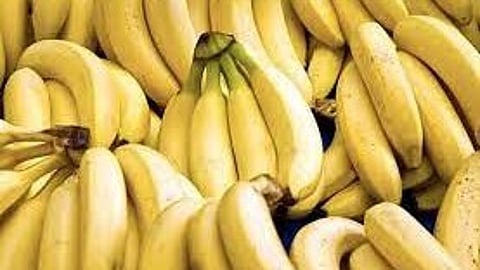
- NEWS
- the EDIT
- COMMENTARY
- BUSINESS
- LIFE
- SHOW
- ACTION
- GLOBAL GOALS
- SNAPS
- DYARYO TIRADA
- MORE

The Philippine government is pushing to regain its dominant position in Japan’s banana market by advocating for reduced tariffs and improved trade terms.
This comes after Department of Agriculture Secretary Francisco Tiu Laurel Jr. recently met with Japan’s State Minister of Agriculture, Forestry and Fisheries Hirofumi Takinami to advocate for more favorable arrangements under the Philippines-Japan Economic Partnership Agreement (PJEPA).
“The Philippines takes great pride in being Japan’s top banana supplier. To sustain and expand this industry, we must push for tariff reductions,” Laurel said.
He also stressed that this would increase investment in banana production and stimulate economic growth in Mindanao.
According to the Philippine Embassy in Tokyo, while Japan has not committed to a PJEPA review, officials suggested addressing trade concerns under the Regional Comprehensive Economic Partnership (RCEP), a broader free trade agreement involving ASEAN countries, China, South Korea, Australia and New Zealand.
The Philippines prefers a bilateral review of PJEPA, arguing that a regional approach could result in uneven benefits.
“In RCEP, if you give a concession to one, you have to extend it to all. Countries do not have the same needs,” said Dita Angara-Mathay, commercial counselor at the Philippine Embassy in Tokyo.
Laurel also held a roundtable discussion with Japanese banana importers and Philippine exporters in Tokyo.
The Philippines aims to strengthen its position in the Japanese banana market, facing increasing competition from other banana-producing countries. The government believes that lower tariffs and more favorable trade terms would enhance the competitiveness of Philippine bananas and boost exports.
The PJEPA, a bilateral agreement, allows for more targeted negotiations compared to the broader RCEP. The Philippine government believes that a bilateral approach would better address the specific needs of the Philippine banana industry.
